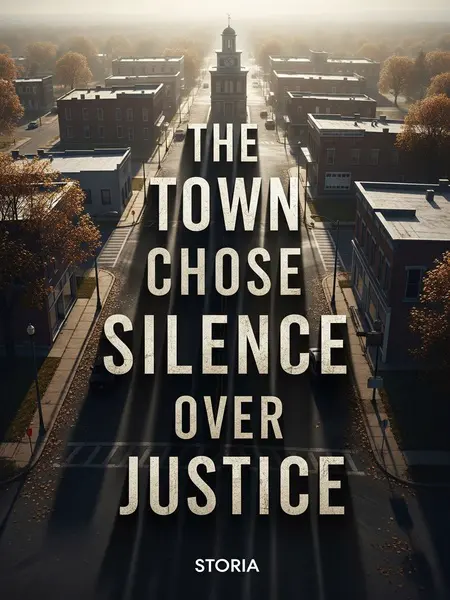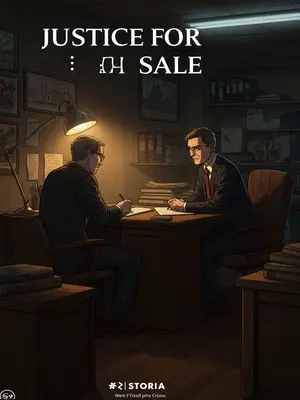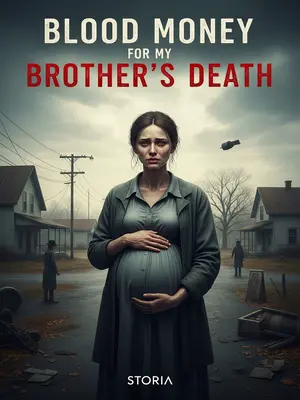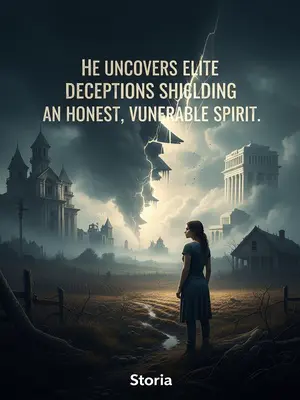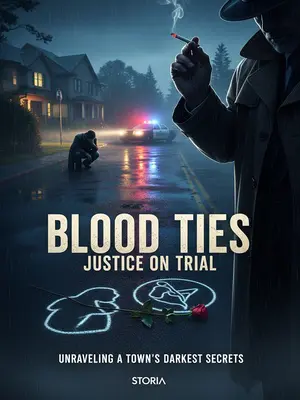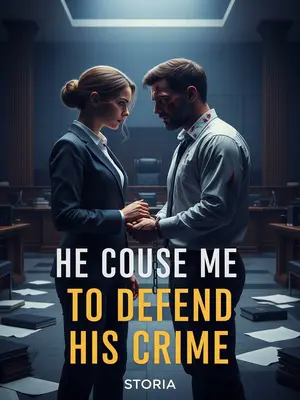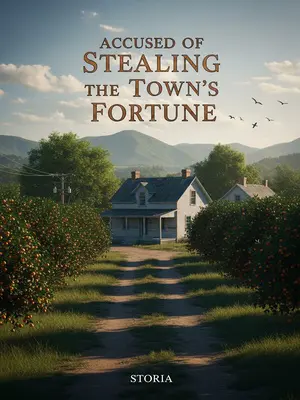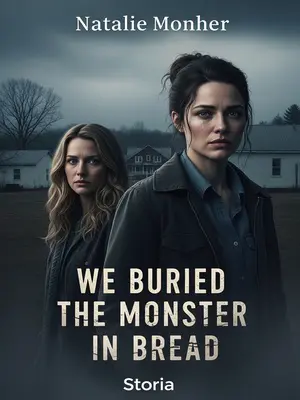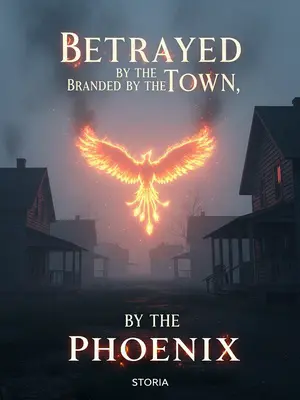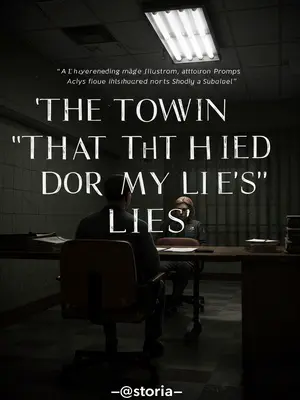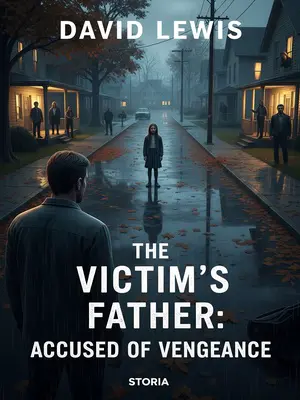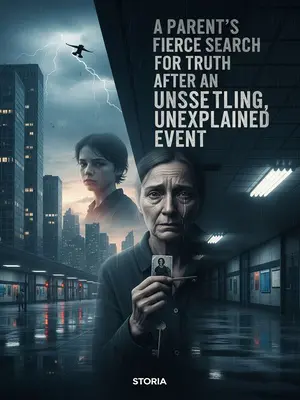Chapter 5: A Town’s Poison
Early the next morning, Ben Thompson’s store did not open.
It was the kind of detail that would go unnoticed in a city, but here, it was like a missing heartbeat. People noticed. Rumors started to churn.
A neighbor, sensing something was wrong, entered and found he had hanged himself inside.
The scene was quiet, almost peaceful, but the undercurrent was one of devastation. The neighbor—a retired mailman named Ed—stood on the curb when we arrived, hands shaking, voice barely above a whisper as he described what he’d seen. Inside, Ben hung from a rafter, his body swaying gently in the stale morning air.
When we arrived, we saw that garbage had been dumped at his door. Red paint had been splashed on the front, with crude, filthy words scrawled across it. Even the wall beside the store had obscene graffiti.
The air stank of rot and cheap spray paint. The words were hateful—accusations and threats, as if paint could replace a trial. Someone had even tossed a Bible onto the front step, opened to a verse about judgment.
We learned all this had been done by townsfolk after we took him away, to curse him.
It was mob justice, pure and simple. There were no secrets in this town—everyone knew who had grabbed the paint cans and trash bags. But nobody was talking now, not after the fact.
But our test results were in: Ben Thompson was not the one who assaulted Emily.
I stared at the report for a long time, the words blurring as anger and sorrow fought inside me. Ben was innocent. The town’s need for a monster had killed an innocent man.
So, most likely, he was not the one who assaulted Rachel, either.
Even so, as we handled his remains, people still whispered that he had killed himself out of guilt.
Some folks never let go of a good story, even when it’s built on lies. The whispers started before the sun was up—insinuations that Ben’s suicide was proof of his guilt, logic be damned.
We all knew he wasn’t a suicide. What truly killed him was malicious rumor.
I wrote the words in my report, but they felt hollow. Rumor in a small town is a poison; Ben didn’t have a chance once the first accusation landed.
But another question arose: if Ben Thompson wasn’t the perpetrator, why did Rachel accuse him?
Jason voiced it first, but we were all thinking it. Was Rachel protecting someone else? Or was she being told what to say?
At the same time, we received bad news about their other classmate, Sarah Young.
Trouble, as always, came in pairs. The phone call came from the hospital this time.
Sarah was also living with her grandmother while her parents worked out of state. She hadn’t had a chance to be examined the day before, when Rachel’s case exploded.
Sarah’s grandmother—sharp as a tack, but overwhelmed—had hustled her granddaughter in the moment news of Rachel broke. She’d been hoping against hope for a different outcome.
But after that incident, her grandmother quickly arranged for her to be checked at the hospital. The result was the same: hymen rupture.
The doctor’s report was clinical, but the implications were anything but. Sarah sat on the exam table, arms wrapped around herself, eyes refusing to meet anyone’s gaze.
While we were still negotiating with the town council about Ben Thompson’s aftermath, Rachel’s parents and Sarah’s grandmother had already gone to the council to demand justice.
The town council met in the old firehouse—tin roof, folding chairs, battered American flag. It wasn’t justice they wanted, but something else entirely.
They didn’t bring the children, only their outrage.
It was a meeting of adults—voices raised, fists pounded on tables, the air thick with accusation and righteous fury. The children, the ones most hurt, were nowhere in sight.
At first, we thought they were angry at us for being slow to find the real culprit.
Jason and I braced for another barrage of criticism about law enforcement, slow bureaucracy, and the failures of the justice system.
But that wasn’t it.
What came next surprised us both.
They didn’t seem to care about the real culprit at all.
Instead of questions about the investigation, we heard demands. Anger, yes—but not the kind that wants answers. It was transactional, calculated.
Because after venting their anger, what we heard was:
“Now that Ben Thompson is dead, how will he compensate our children for their suffering?”
That’s right—even though we’d emphasized that Ben Thompson was not the real culprit, they didn’t care.
There was a long silence after the question. I remember staring at my notepad, stunned. It was as if Ben’s innocence—or guilt—no longer mattered. Compensation was the only thing on the table.
Things became even more chaotic as they began making demands: asking us to unseal Ben Thompson’s store, search for his assets, and give them to their children as compensation.
It felt surreal. They listed the store’s contents like items on a yard sale—cash register, candy display, even the old TV. They wanted it all, and they wanted it now.
Of course, we couldn’t agree. Ben Thompson’s affairs hadn’t been settled, and the store was still sealed.
We tried to explain, but no one was listening. The mayor looked helpless, wringing his hands, eyes darting between the families and us. No one wanted to be the villain, but the rules were the rules.
The town council was also helpless, only promising to resolve things quickly, find the real culprit, and—of course—provide compensation as soon as possible…
It was a circus. Promises made, none likely to be kept. The council president mopped sweat from his brow, voice shaky as he tried to reassure everyone.
After a lengthy argument, they finally left, though reluctantly.
The room emptied out slowly, the tension lingering like humidity after a storm. I watched the families go, their anger undiminished, their hopes for answers replaced by a single-minded pursuit of restitution.
This left me with a strange feeling.
Jason said it best on the drive home: “They’re not looking for the truth anymore. They just want something to show for all this pain.”
It was a bitter realization. In their eyes, justice was a matter of dollars and cents—a way to settle the score, not to heal wounds.
Another point: during the dispute, we suggested that the investigating officers communicate with the girls again. But the guardians all refused.
They shut us down instantly—"the girls are too traumatized," "they need time." I saw the fear in their eyes, but I couldn’t tell if it was for the girls or for themselves.
Looking back, from the moment the case broke until now, no one had been able to speak with the girls alone. Every conversation required the guardians’ authorization, and they were always present.
It was a wall we couldn’t climb. The rules meant to protect children sometimes shielded the truth as well.
At first, I thought they were just protecting the children. But after the town council incident, I had another thought: maybe they didn’t want us to learn anything from the children. Maybe accusing Ben Thompson wasn’t truly the girls’ own intention.
Jason voiced what I was afraid to: “You think someone’s telling them what to say?” It was a theory I couldn’t shake.
But at the time, we really had no way to bypass the guardians and question the girls directly.
We were stuck—trapped by the very laws meant to protect the vulnerable.
So, the case stalled again.
We sat in the station, coffee growing cold, staring at a whiteboard that refused to yield new clues. The whole investigation felt like running in circles.
We could only try a different approach.
